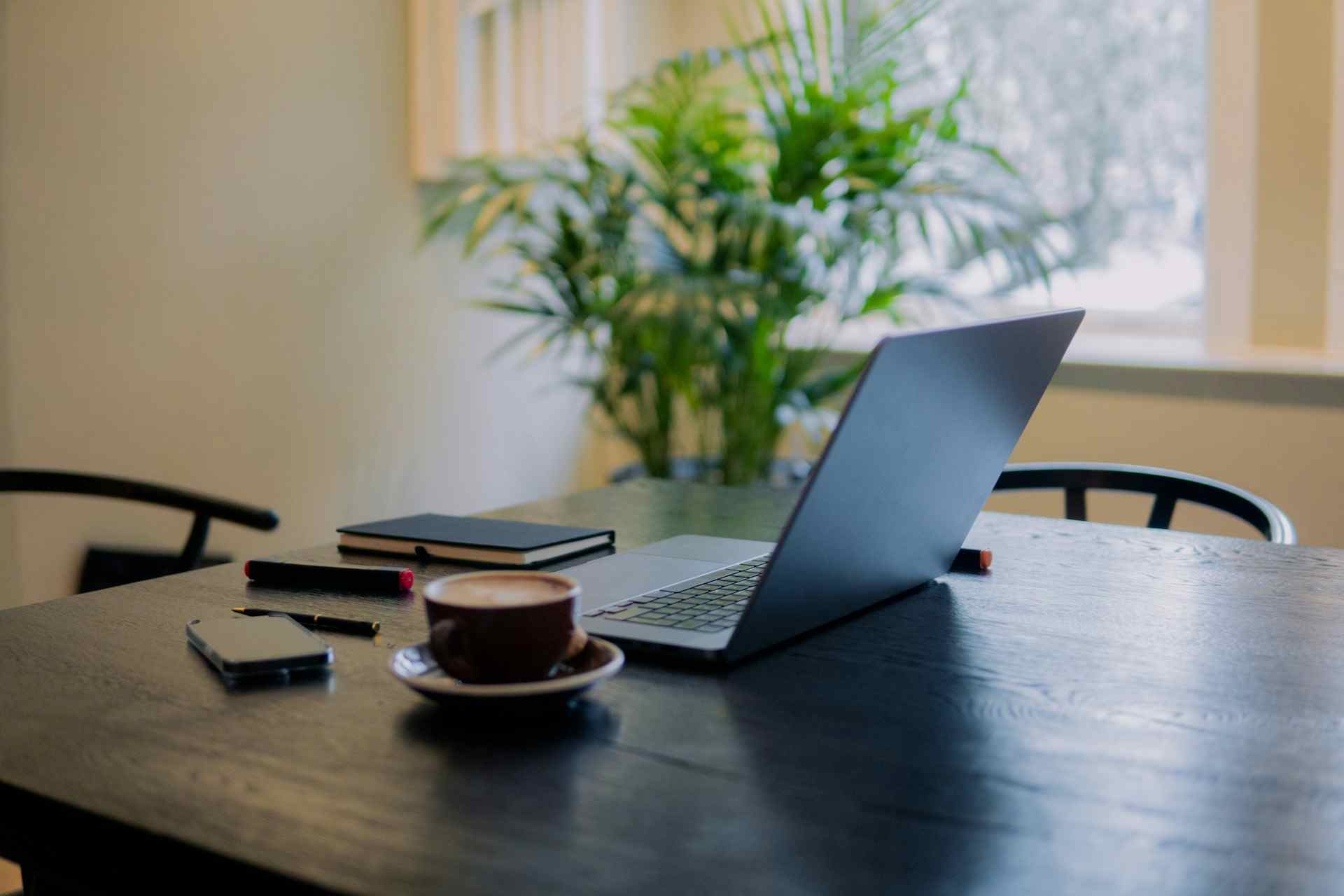Menopause is a natural transition for women, but its emotional and mental symptoms are rarely addressed. Society focuses heavily on a girl’s stages of puberty, pregnancy, and post-partum but seems to lessen its focus on menopause and its effects on mental health. Many women struggle with menopause and anxiety due to hormone fluctuations.
Menopause: A Natural Transition
Menopause is the transitional period between menstruation and post-menopause when a woman stops the menstrual cycle altogether. This transitional period begins in the perimenopausal years, usually a few years before the 12 months of no period. Most start perimenopause in their late forties and experience menopause in their fifties.
 For the menstrual cycle to cease, hormonal fluctuations, especially estrogen, occur. These fluctuations cause symptoms, including mild to severe anxiety, headaches, sleep disturbances, hot flashes, and other symptoms. The severity of symptoms can vary between women. Some women do not experience symptoms at all or only mild ones, while others can find this time challenging, interfering with daily life.
For the menstrual cycle to cease, hormonal fluctuations, especially estrogen, occur. These fluctuations cause symptoms, including mild to severe anxiety, headaches, sleep disturbances, hot flashes, and other symptoms. The severity of symptoms can vary between women. Some women do not experience symptoms at all or only mild ones, while others can find this time challenging, interfering with daily life.
This is also the period of time when a woman has more adult responsibilities. She may be married, the sole provider, raising a family, caring for aging parents, juggling work responsibilities, building a career, returning to school, or learning to save and invest. Carving out time for herself is more challenging this season, yet critical for her physical, emotional, and mental health.
Tips for Conquering Menopause and Anxiety
Menopause and anxiety combined can set the tone for the day unless you do activities and make lifestyle changes to lessen the effects. Rising cortisol levels occur upon waking, which can trigger anxiety and heart palpitations. Consider making lifestyle choices that will make the transition smoother.
Choose one or two tips for menopause and anxiety to incorporate into your life. Once you have made these changes in habits, adopt another new tip. There are several ways you can be proactive in conquering menopause and anxiety and keeping your body strong.
Make building muscle a priority
As we age, we lose muscle mass each decade. Unfortunately, the rate at which we lose muscle mass speeds up after age fifty. You can lose 5% to 10% of your muscle mass during menopause and each decade after. Falls can lead to hospitalization in postmenopausal women. Muscles are critical for posture, balance, stability, and flexibility. Muscles also hold energy and help bodily functions. Consistent strength training lowers stress and anxiety levels and boosts mood.
Seek the advice of your physician and gain clearance before starting a strength training program. If you are unfamiliar with lifting weights or body-weight exercises, consult a personal trainer to learn about proper form. Aim for two to three days a week of strength training exercises. Some women find lifting heavier weights with correct form and building strength over time by increasing weights to be the most beneficial.
 Avoid ultra-processed food
Avoid ultra-processed food
Ultra-processed food can worsen the symptoms of menopause and anxiety due to additives, dyes, chemicals, and preservatives. High sodium and foods with added sugar lead to high blood pressure, inflammation, increased heart rate, and obesity.
Aim for whole foods that are as close to nature as possible. Avoid foods with chemicals, high levels of salt, and added sugars. Choose lean proteins, complex carbohydrates, healthy fats, and fresh fruits and vegetables.
Add protein to every meal
Most women do not consume enough protein daily, especially in the peri- and menopausal years. Without enough protein, the brain does not have a sufficient amount of amino acids for neurotransmitters. Protein not only helps to build muscle mass, but it helps the body recover and repair tissue, regulate blood sugar levels, and decrease your chances of developing osteoporosis.
Ask your doctor or a nutritionist for guidelines on the proper amount of protein needed. Most research suggests 0.75 grams to 1.2 grams of protein per kilogram of body weight. For example, a 150-pound (68.18 kilogram) menopausal woman may consume between fifty-one to eighty-two grams of protein daily. Your activity level and fitness routine (strength training) may require the lower or higher end of this scale. Consult your physician for a more customized amount.
Create a nightly routine for better sleep quality
Menopause can affect your sleep quality, causing you to wake up throughout the night, trouble falling asleep, or night sweats that make it impossible to fall back into bed without showering and changing the sheets first. One of the best ways to lower anxiety and induce sleep is with a nightly routine.
A consistent nightly routine will trigger your mind and body that it is time to wind down. Try not to make your routine too complicated. You want a few steps that are easy to do. For example, two hours before bed, you could take a warm bath, brew a cup of herbal tea, and climb into bed with a book. These three steps can help you unwind and fall asleep faster.
 Self-care activities to lower stress
Self-care activities to lower stress
Spending a few minutes daily on self-care is not selfish. Self-care is needed to rest your mind, recharge your body, and awaken your spirit. The best thing about self-care is choosing the activities that bring you joy.
For example, you may soak in the tub after dinner on Monday night, grab your favorite hot drink from the coffee shop on Wednesday afternoon, and curl up with a new cozy mystery on Friday evening. Your self-care activities will lower stress and offer an oasis for your mind.
Reduce alcohol and caffeine
Alcohol and caffeine can worsen menopause and anxiety symptoms. Alcohol increases the risk of osteoporosis, making your bones weak and brittle. Alcohol may help relax you initially, but it will interfere with the quality of your sleep. Caffeine gives you the pep you want early in the morning, but can overstimulate you later in the day, disrupting sleep, increasing heart rate, and worsening anxiety.
Consider removing alcohol from your lifestyle unless it is for a special occasion. Cut back on caffeinated drinks to one in the morning if needed. To help with this transition, try half-caffeinated or decaf coffee, decaf or herbal teas, and water.
Stop smoking and avoid illicit drugs
 Many people can tolerate moderate amounts of alcohol and caffeine without too much trouble when it comes to menopause and anxiety. However, substances like nicotine and illicit drugs will not help your body or mind. Smoking affects hormone levels, leading to the early onset of menopause and more severe symptoms.
Many people can tolerate moderate amounts of alcohol and caffeine without too much trouble when it comes to menopause and anxiety. However, substances like nicotine and illicit drugs will not help your body or mind. Smoking affects hormone levels, leading to the early onset of menopause and more severe symptoms.
Smoking and drug use can also make you jittery and anxious. Speak to a counselor if you struggle with addiction. You can overcome tobacco, vaping, and drug addiction.
Ask your doctor about hormone replacement therapy (HRT)
Hormone Replacement Therapy (HRT) is not for everyone. Women who have or have had issues with blood clots, uncontrolled blood pressure, heart attack, breast cancer, liver disease, or coronary artery disease should speak to their doctor before starting HRT.
Women without these conditions should be reassessed every year during Hormone Replacement Therapy. HRT stabilizes hormones. This balance lessens anxiety and regulates mood. Speak to your doctor about whether HRT is the right fit for you.
Therapy Can Help
There are various forms of therapy you can try for menopause and anxiety. Depending on your symptoms, personality, preference, and counselor, you could try talk therapy, group therapy, or Cognitive Behavioral Therapy (CBT) to manage symptoms. Sessions can either be in person or virtual.
Contact us today to get started
Are you struggling with menopause and anxiety? Are the hormone fluctuations, emotions, and physical changes causing issues in your daily life? Contact us today to connect with a Christian counselor specializing in women’s issues. Menopause is natural, but you don’t have to struggle alone with menopause and anxiety.
Photos:
“Frustrated”, Courtesy of engin akyurt, Unsplash.com, CC0 License; “Woman with Coffee”, Courtesy of Олександр Білоцерківець, Unsplash.com, CC0 License; “Smiling Woman”, Courtesy of Look Studio, Unsplash.com, CC0 License; “Smiling Woman”, Courtesy of Getty Images, Unsplash.com, Unsplash+ License
-
Shelby Murphy: Author
As a Christian counselor, I see you as a unique, valuable individual who bears the image of God. I am committed to giving you my best and serving you with the tools, gifts, and training I have been given. As we walk together toward the true, the good...
-
Kate Motaung: Curator
Kate Motaung is the Senior Writer, Editor, and Content Manager for a multi-state company. She is the author of several books including Letters to Grief, 101 Prayers for Comfort in Difficult Times, and A Place to Land: A Story of Longing and Belonging...
DISCLAIMER: THIS ARTICLE DOES NOT PROVIDE MEDICAL ADVICE
Articles are intended for informational purposes only and do not constitute medical advice; the content is not intended to be a substitute for professional medical advice, diagnosis, or treatment. All opinions expressed by authors and quoted sources are their own and do not necessarily reflect the opinions of the editors, publishers or editorial boards of Stone Oak Christian Counseling. This website does not recommend or endorse any specific tests, physicians, products, procedures, opinions, or other information that may be mentioned on the Site. Reliance on any information provided by this website is solely at your own risk.





